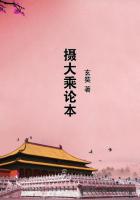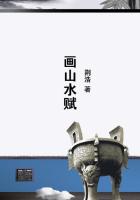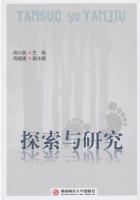"John Brown," his long night's vigil over, extinguished the lights in the two towers, descended the iron stairs, and walked across the yard into the kitchen. His first move, after entering the house, was to ring the telephone bell and endeavor to call Eastboro. He was anxious concerning Atkins. Seth had not returned, and the substitute assistant was certain that some accident must have befallen him. The storm had been severe, but it would take more than weather to keep the lightkeeper from his post; if he was all right he would have managed to return somehow.
Brown rang the bell time and time again, but got no response. The storm had wrecked the wires, that was certain, and that means of communication was cut off. He kindled the fire in the range and tried to forget his anxiety by preparing breakfast. When it was prepared he waited a while and then sat down to a lonely meal. But he had no appetite, and, after dallying with the food on his plate, gave it up and went outside to look about him.
The first thing he looked at was the road from the village. No sign of life in that direction as far as he could see. Then he looked at the bungalow. Early as it was, a thread of blue smoke was ascending from the chimney. Did that mean that the housekeeper had returned?
Or had Ruth Graham been alone all through the miserable night?
Under ordinary circumstances he would have gone over and asked if all was well. He would have done that, even if Seth were at home-- he was past the point where the lightkeeper or their compact could have prevented him--but he could not muster courage to go now. She must have found the note he had tucked under the door, and he was afraid to hear her answer. If it should be no, then--well, then he did not care what became of him.
He watched the bungalow for a time, hoping that she might come out-- that he might at least see her--but the door did not open. Auguring all sorts of dismal things from this, he moped gloomily back to the kitchen. He was tired and had not slept for thirty hours, but he felt no desire for bed. He could not go to bed anyway until Atkins returned--and he did not want to.
He sat down in a chair and idly picked up one of a pile of newspapers lying in the corner. They were the New York and Boston papers which the grocery boy had brought over from Eastboro, with the mail, the previous day. Seth had not even looked at them, and Brown, who seldom or never read newspapers, found that he could not do so now. He tossed them on the table and once more went out of doors. After another glance at the bungalow, he walked to the edge of the bluff and looked over.
He was astonished to see how far the tide had risen in the night.
The line of seaweed and drift marking its highest point was well up the bank. Now the ebb was foaming past the end of the wharf. He looked for the lobster car, which should have been floating at its moorings, but could not see it. Either it was under the wharf or it had been swept away and was gone. And one of the dories was gone, too. No, there it was, across the cove, high and dry on the beach.
If so much damage was visible from where he stood, it was probable that a closer examination might show even more. He reentered the kitchen, took the boathouse key from its nail--the key to Seth's wonderful purchase, the spring lock which was to keep out thieves and had so far been of no use except as a trouble-maker--and started for the wharf. As he passed the table he picked up the bundle of newspapers and took them with him. The boathouse was the repository for rubbish, old papers and magazines included, and these might as well be added to the heap. Atkins had not read this particular lot, but the substitute assistant did not think of this.
The lobster car was not under the wharf. The ropes which had moored it were broken, and the car was gone. Splinters and dents in the piles showed where it had banged and thumped in the grasp of the tide before breaking loose. And, lying flat on the wharf and peering under it, it seemed to him that the piles themselves were a trifle aslant; that the whole wharf had settled down on the outer side.
He rose and was about to go further out for another examination, when his foot struck the pile of papers he had brought with him. He picked them up, and, unlocking the boathouse door--it stuck and required considerable effort to open it--entered the building, tossed the papers on the floor, and turned to go out. Before he could do so the door swung shut with a bang and a click.
At first he did not realize what the click meant. Not until he tried to open it did he understand. The settling of the wharf had thrown the door and its frame out of the perpendicular. That was why it stuck and opened with such reluctance. When he opened it, he had, so to speak, pushed it uphill. Its own weight had swung it back, and the spring lock--in which he had left the key--had worked exactly as the circular of directions declared it would do. He was a prisoner in that boathouse.
Even then he did not fully grasp the situation. He uttered an exclamation of impatience and tugged at the door; but it was heavy, jammed tight in its frame, and the lock was new and strong. He might as well have tried to pull up the wharf.
After a minute of fruitless effort he gave up the attempt on the door and moved about the little building, seeking other avenues of escape. The only window was a narrow affair, high up at the back, hung on hinges and fastened with a hook and staple. He climbed up on the fish nets and empty boxes, got the window open, and thrust his head and one shoulder through the opening. That, however, was as far as he could go. A dwarf might have squeezed through that window, but not an ex-varsity athlete like Russell Brooks or a husky longshoreman like "John Brown." It was at the back, facing the mouth of the creek and the sea, and afforded a beautiful marine view, but that was all. He dropped back on the fish nets and audibly expressed his opinion of the lock and the man who had bought it.

